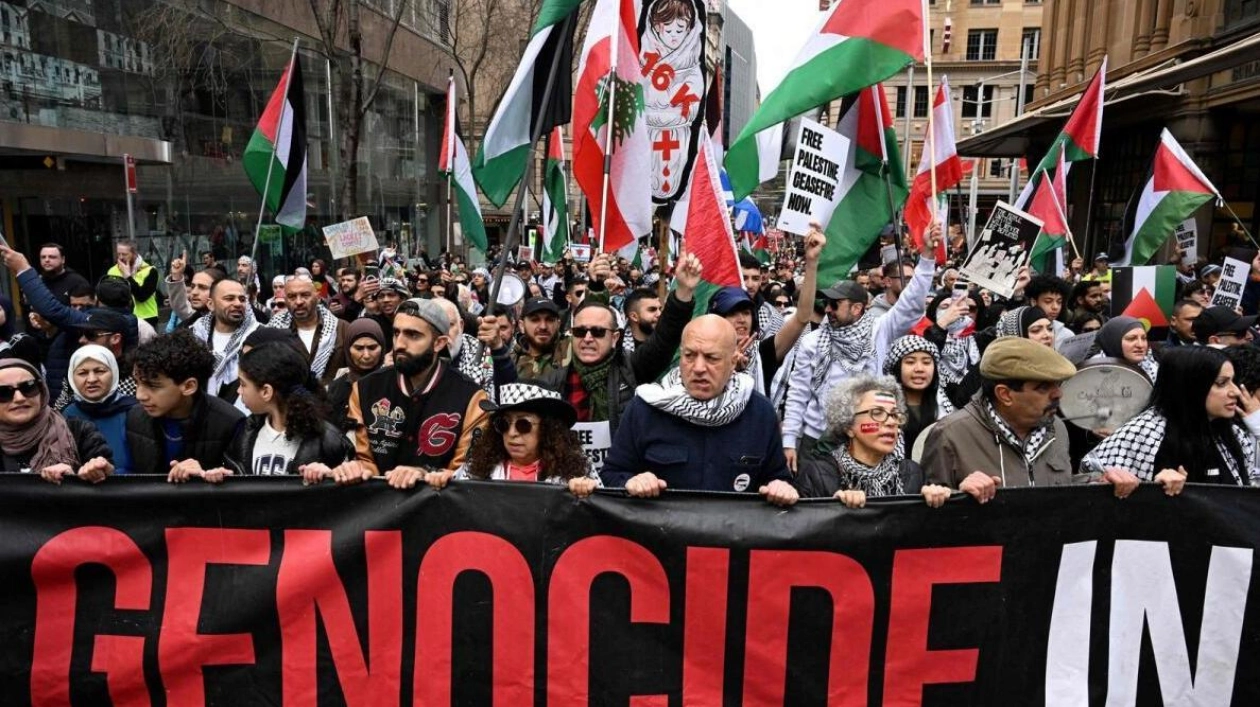The assassination of Hamas's political leader, blamed on Israel, has raised concerns about a broader regional conflict and has cast doubt on ongoing negotiations to end the nearly 10-month war in Gaza. Since Hamas's lethal attack on Israel on October 7 led to severe retaliation in Gaza, Qatar has played a crucial role as a mediator with the Palestinian militant group. The slain political leader of the movement, Ismail Haniyeh, was based in the Gulf state. Alongside the United States and Egypt, Qatar has been conducting months of secret negotiations aimed at securing an additional truce, beyond the one-week pause in November when numerous Israeli and foreign hostages were released in exchange for Palestinian prisoners.
However, following Haniyeh's assassination in Tehran, Qatar's Prime Minister Sheikh Mohammed bin Abdulrahman Al Thani expressed skepticism about the future success of these talks. "How can mediation succeed when one party assassinates the negotiator on the other side?" he questioned. Prior to Haniyeh's assassination, Hamas had accused Israeli Prime Minister Benjamin Netanyahu of delaying a potential Gaza ceasefire. During a meeting in Rome one week ago, the militants claimed that Israel introduced new conditions for a deal, which represented a regression from its earlier stance. United States President Joe Biden proposed an Israeli initiative for a truce and hostage release deal in late May, which formed the basis for subsequent discussions. The UN Security Council supported this framework.
Netanyahu's office claimed that Hamas leadership was obstructing an agreement and denied any changes to the draft outline. US news site Axios reported, citing two Israeli officials, that talks in Cairo between Israeli and Egyptian delegations had stalled, ending without a breakthrough. Qatari negotiators were not present. Middle East expert Andreas Krieg, a military analyst and senior lecturer at King's College London, stated that even before Haniyeh's killing, the Israeli government, particularly Netanyahu, had not instilled confidence in the mediators. "The killing of Haniyeh and the escalation in Beirut do not suggest Israel is genuinely interested in a ceasefire," he added, referring to the Israeli killing of Hezbollah's military chief in Lebanon.
Simultaneously, the killings of these and other senior militants offer Netanyahu an opportunity to construct a narrative of victory and use this as a genuine entry point into ceasefire talks, according to Krieg. Haniyeh was elected as Hamas's political leader in 2017 and was instrumental in the movement's international dealings. Following the events of October 7, he played a pivotal role in negotiations with mediators in Qatar, where Hamas's political office has been located since 2012 with US approval. Joost Hiltermann, director of International Crisis Group's Middle East program, noted that Haniyeh was a pragmatic figure who sought to finalize a deal and acted in good faith.
Krieg mentioned that Haniyeh was capable of overcoming some of the challenges during the mediation process, which is now a lost asset due to his assassination. However, this does not mean that his killing has completely disrupted mediation efforts, at least not in the short term. Iran and its allies in the "axis of resistance" have pledged to retaliate for last week's killings. Hiltermann warned that in a worst-case scenario with substantial casualties on the Israeli side, further Gaza truce talks would be jeopardized, leading to a dangerous escalatory cycle without any hostage release or ceasefire negotiations. Even in a less severe attack, if Israel can bear the consequences and is persuaded by the United States to do so, it would still provide Netanyahu with additional reasons to delay.
One potential outcome of an escalation in Lebanon, according to Krieg, is pressure on Israel to make concessions as it is "not ready for that war" and would need to free up resources currently tied down in Gaza. However, Krieg believes that "in the very short term...for this month of August, I think mediation and negotiation is probably dead."






